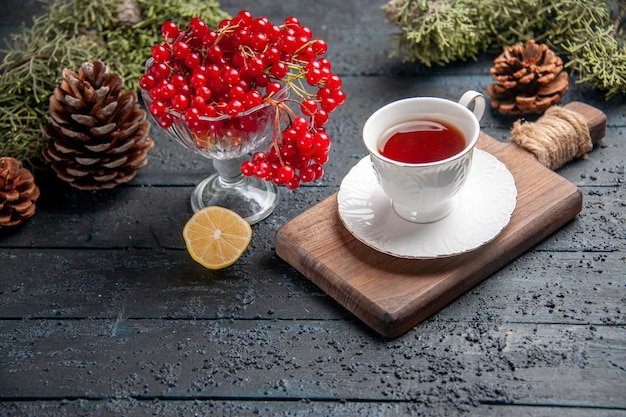
Herbal teas offer numerous benefits and can be enjoyed in many forms, whether as drinks, natural remedies, or even in foods. One of my favorites is Rooibos Tea, also known as Red Bush tea, which originates from the South African Rooibos plant (Aspalathus linearis).
This beautiful, aromatic red herbal tea has a naturally sweet flavor and floral scent. It exclusively grows in the Cederberg Mountains of South Africa, and its bush is quite different from typical tea plants, reaching about 3 feet tall with needle-like leaves similar to a pine tree.
Generally, Rooibos tea is naturally fermented and dried to achieve its deep red color, but when harvested, the leaves are green. This unfermented tea, available at some specialty shops, is higher in antioxidants.
While Rooibos hasn’t reached the popularity of green or mate tea, it offers just as many, if not more, benefits. It’s worth noting that Rooibos is technically an herbal tea rather than a true tea. It’s naturally caffeine-free and pleasantly sweet, with a taste similar to honey and roses.
Some of its notable benefits include:
Rooibos tea is rich in polyphenols, compounds known for their antioxidant effects. In fact, it contains up to 50% more polyphenols and antioxidants than Green Tea. This makes it a great alternative, especially with the rising concerns about radiation levels in green tea. It also has unique polyphenols, including Aspalathin, which is exclusive to Rooibos. Furthermore, it contains super oxide dismutase, a potent antioxidant. These antioxidants are believed to protect against free radicals; the South African Cancer Association even recognizes Rooibos Tea as a leading source of anti-cancer compounds.
Rooibos is a good source of minerals such as Calcium, Iron, Potassium, Copper, Zinc, and Magnesium. Globally, many consume it for skin, hair, and bone health because of its high mineral and alpha hydroxy acid content. It’s also a great alternative calcium source for children intolerant to dairy.
The minerals and nutrients in Rooibos work together to improve absorption. For example, it contains magnesium to aid calcium absorption and copper to facilitate zinc absorption.
Despite some claims, I didn’t find evidence supporting the notion that Rooibos tea is rich in Vitamin C. Nonetheless, it’s a great source of other nutrients and antioxidants. Interestingly, Rooibos, when combined with Vitamin C, appears to enhance absorption of both.
Rooibos is also linked to the flavonoids luteolin and quercetin, which provide about 1.5 mg per cup. Lab tests suggest these may help protect against certain cancers.
Often recommended during pregnancy and for those anemic, Rooibos might assist with iron and other nutrient absorption. Naturally caffeine-free, it’s an excellent option for those avoiding caffeine and cannot consume coffee or other teas. It’s low in tannins, which some people can’t tolerate, giving it a less bitter taste compared to other teas.
Rooibos is one of the few teas without oxalic acid, making it a safe alternative for those prone to kidney or bladder stones.
The tea contains chrysoeriol, a compound that improves circulation and might support heart health. Rooibos also has calming effects on the central nervous system, promoting relaxation. It’s a popular natural sleep aid, considered beneficial for those who suffer from insomnia or prefer a caffeine-free substitute for other beverages, which improves sleep quality.
Rooibos tea is sweet and non-bitter even when brewed for longer periods, making it enjoyable both hot and cold.
For hot Rooibos tea: Use 1 teaspoon to 1 tablespoon of loose leaf Rooibos tea in a tea infuser, placed in a mug. Add 1 cup of boiling water and let it steep for 5 to 15 minutes. Sweeten with honey or a natural sweetener if desired.
To make iced Rooibos tea: Double the loose leaf amount (up to 2 tablespoons), pour 8 ounces of boiling water, and steep for at least 10 minutes. Sweeten if desired, pour over ice, and serve.
To brew a gallon: Boil 1 gallon of water in a large pot, add 1/2 cup of loose leaf Rooibos, stir, and let cool. Strain the leaves and store in a fridge, where it lasts for 2-3 days.
Thanks to its rising popularity, several good brands of Rooibos are available. Opt for an organic and fair-trade certified version. Loose leaf options are typically more cost-effective, and I often buy mine in bulk. Recently, I’ve been adding it to my Raspberry Leaf Pregnancy Tea for its sweet taste.
Rooibos tea is both a delicious and naturally sweet, calorie-free alternative to other teas or coffee. While research on its health benefits is still ongoing, Rooibos is safe to consume and offers a refreshing, tasty beverage option.

